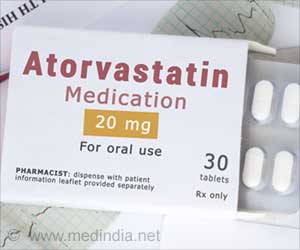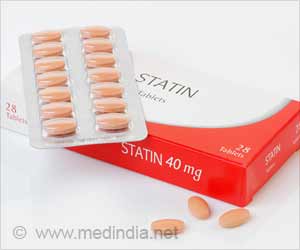Lowering low-density lipoprotein cholesterol by 1 mmol/L with statins lowers the chance of developing ischemic heart disease by 24% to 25%.
- Cardiovascular disease is the leading cause of illness and death worldwide
- Stopping statin treatment, unless advised by a doctor, is not a wise choice
- The benefit from statins occurs later in life. Stopping statin therapy impairs lifelong protection against heart disease
To maximize the benefits, when to begin and how long to continue taking statins is unclear. The study calculated the accumulation of benefits with statins according to age at therapy commencement.
Data from 500,000 people in the UK Biobank population cohort and 118,000 participants in significant worldwide statin trials from the Cholesterol Treatment Trialists’ Collaboration was analyzed for the study.
The model simulated annual risk of heart attack, stroke, coronary revascularization, diabetes, cancer, vascular death and nonvascular mortality for every participant based on personal attributes (such as age and sex) and medical history. The effect of therapy versus no therapy was calculated using the following scenarios:
- Lifelong therapy (used until death or 110 years of age, whichever came first)
- Therapy ceased at 80 years of age
- Delayed commencement of therapy by five years among persons under the age of 45.
Lifelong Benefits of Statin Therapy
In quality-adjusted life years (QALYs), which are the duration of life adjusted by health to represent quality of life, the benefit of statins was quantified. A QALY is the same as a year of life with optimal health. Benefits were also reported separately based on baseline cardiovascular risk, which is dependent on factors like age, blood pressure, cholesterol levels, smoking status and underlying medical conditions. It measures the possibility of having a heart attack or stroke over the next 10 years.“Our study suggests that people who start taking statins in their 50s but stop at 80 years of age instead of continuing lifelong will lose 73% of the QALY benefit if they are at relatively low cardiovascular risk and 36% if they are at high cardiovascular risk – since those at elevated risk start to benefit earlier. Women’s cardiovascular risk is generally lower than men. This means that for women, most of the lifelong benefit from statins occurs later in life and stopping therapy prematurely is likely more detrimental than for men,” said Dr. Wu.
“Again, this is because people at higher cardiovascular risk start to accrue benefit early on and have more to lose by delaying statin therapy than those at low risk,” said Dr. Wu.













